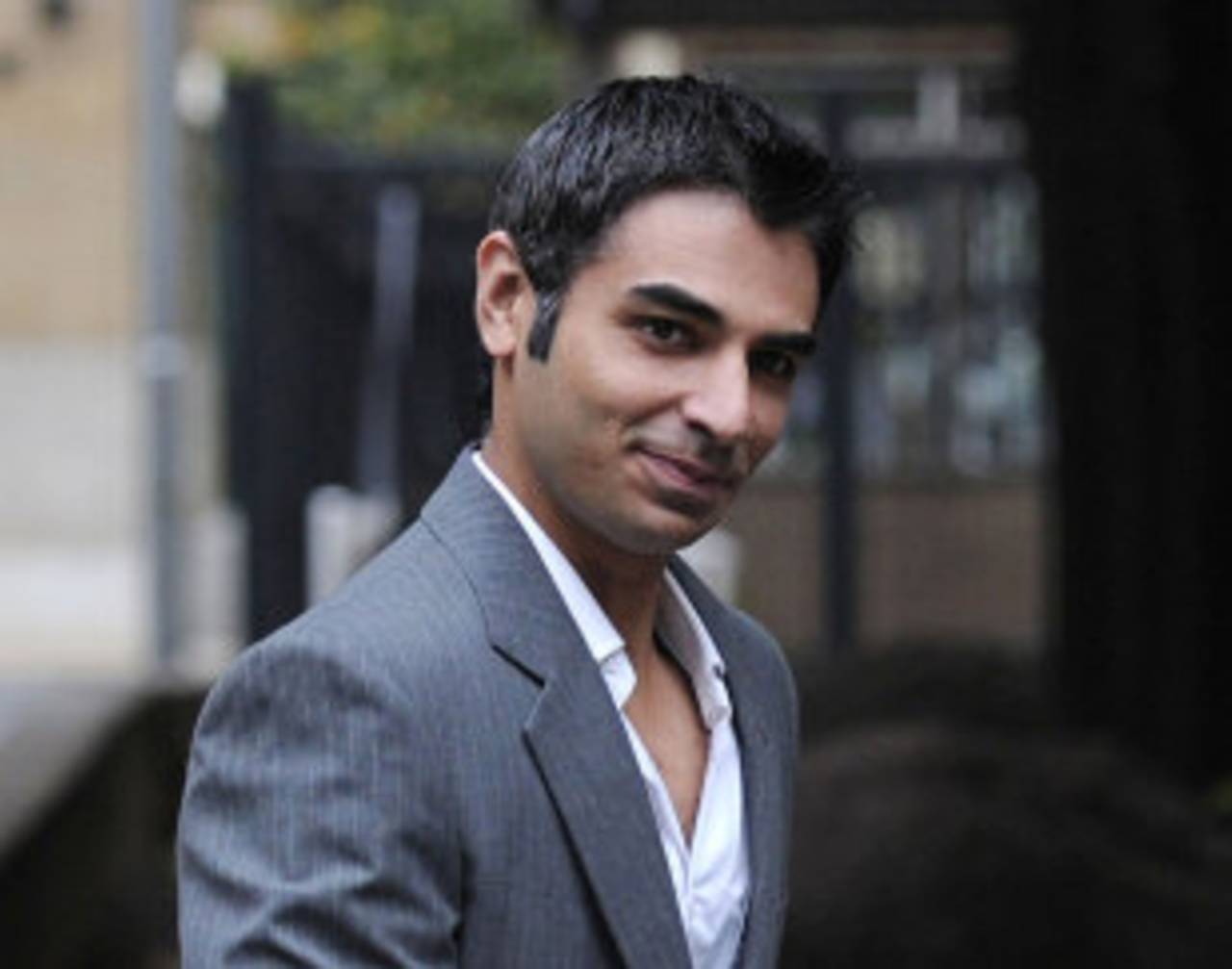Court hears how spot-fixing plan unfolded
A court heard on Monday a recording of how the alleged Pakistan spot-fixing controversy was spawned
Richard Sydenham at Southwark Crown Court
Oct 10, 2011, 3:02 PM

Salman Butt listened to evidence as the trial entered a second week • AFP
A court heard on Monday a recording of how the alleged Pakistan spot-fixing controversy was spawned - from an initial conversation about setting up a Twenty20 event to a murkier debate about fixing and how Pakistan players made significant amounts of money from the corrupt practice.
The latest development unravelled as former Pakistan captain Salman Butt and fast bowler Mohammad Asif sat in the dock at Southwark Crown Court, on the fourth day of their trial as they defend themselves against charges of bowling pre-determined no-balls in the Lord's Test against England last year. They deny the charges.
The court had already heard the initial opening from prosecution witness Mazhar Mahmood, the investigative journalist who lured agent Mazhar Majeed in a sting operation. What came next was another recorded conversation that saw their business drift from potential innocent opportunism to alleged corruption.
Mahmood had first gained Majeed's trust by discussing the possibility of using Majeed's Pakistani player clients in a Twenty20 event to be staged in Abu Dhabi. But then, after a second meeting at the Bombay Brasserie restaurant in London, the two went outside to Mahmood's car and it was there that the journalist dropped his cover story and brought up the subject of fixing, saying that is what his Far East bosses are really interested in. Majeed was not spooked by the change of topic, quite the opposite.
"Yes there's big money in this thing," he was heard boasting on the recording in court. "(But) they have made it very, very difficult in many ways (to fix now).
He added: "I have been doing it with them (the Pakistan players he claims to control)…for about two and a half years and we've made masses and masses of money."
He went on to describe how he deals with an illegal Indian bookmaking cartel because they pay more for the information, and added how he and the players fix "brackets" of matches, or small periods within a match. He told of how they might fix the amount of runs scored within a ten over period.
"If we have scored 13 off three overs then the market will be expecting high scoring so the boys will then slow the scoring down and might score just 14 or less off the next seven overs," Majeed was heard to say on the tape.
He also told of how bowler Mohammad Asif would signal the start of a bracket by running in to bowl and then stopping short so the umpire would rule a dead ball. The case continues.